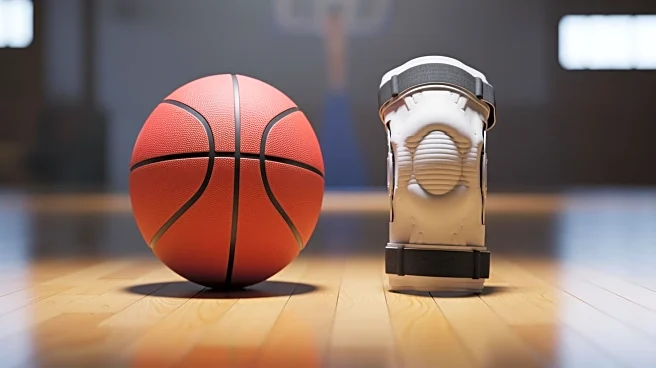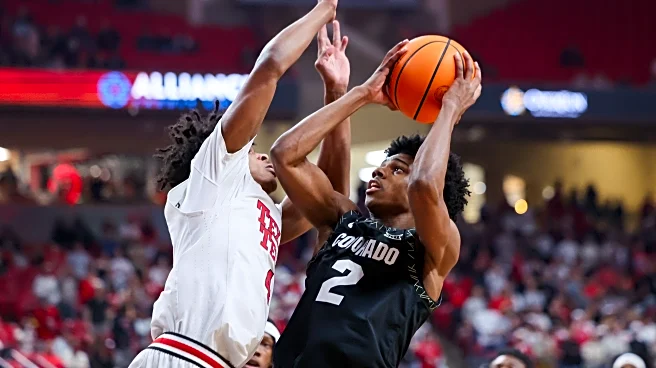What's Happening?
LSU star linebacker Whit Weeks was ejected from the game against Florida for targeting, following a helmet-to-helmet hit on Florida receiver Vernell Brown III. The incident occurred during the third play from scrimmage, after Brown made a 6-yard catch. The penalty resulted in a first down for Florida at the LSU 29-yard line, and the Gators capitalized by scoring a field goal to open the game. Weeks, a preseason All-America selection and team captain, had been a key player for LSU, contributing seven tackles, including half a sack and one tackle for loss in the previous two games. Following his ejection, Weeks was replaced by his older brother, West Weeks, who joined Harold Perkins in the two-linebacker formations.
Why It's Important?
The ejection of Whit Weeks is significant as it impacts LSU's defensive strategy and depth. As a key player and leader on the field, his absence could affect the team's performance, especially against a competitive opponent like Florida. The targeting rule, designed to enhance player safety, often leads to controversial ejections that can alter the dynamics of a game. This incident highlights the ongoing debate about the rule's implementation and its impact on college football. For LSU, adjusting to the loss of a top linebacker mid-game presents a challenge, potentially affecting their defensive effectiveness and game outcome.
What's Next?
LSU will need to adapt quickly to the absence of Whit Weeks, relying on other players like West Weeks and Harold Perkins to fill the gap. The team will likely review the incident to understand the circumstances leading to the ejection and to prevent future occurrences. The targeting rule and its enforcement may continue to be a topic of discussion among coaches, players, and officials, possibly influencing future rule adjustments or clarifications. LSU's coaching staff will focus on maintaining team morale and performance as they navigate the remainder of the game and upcoming matches.











